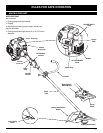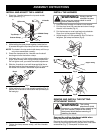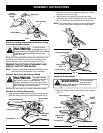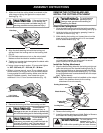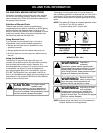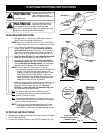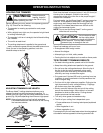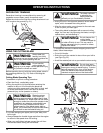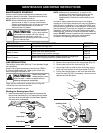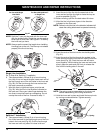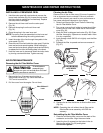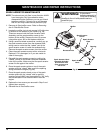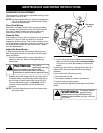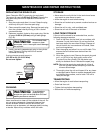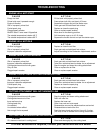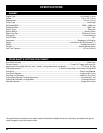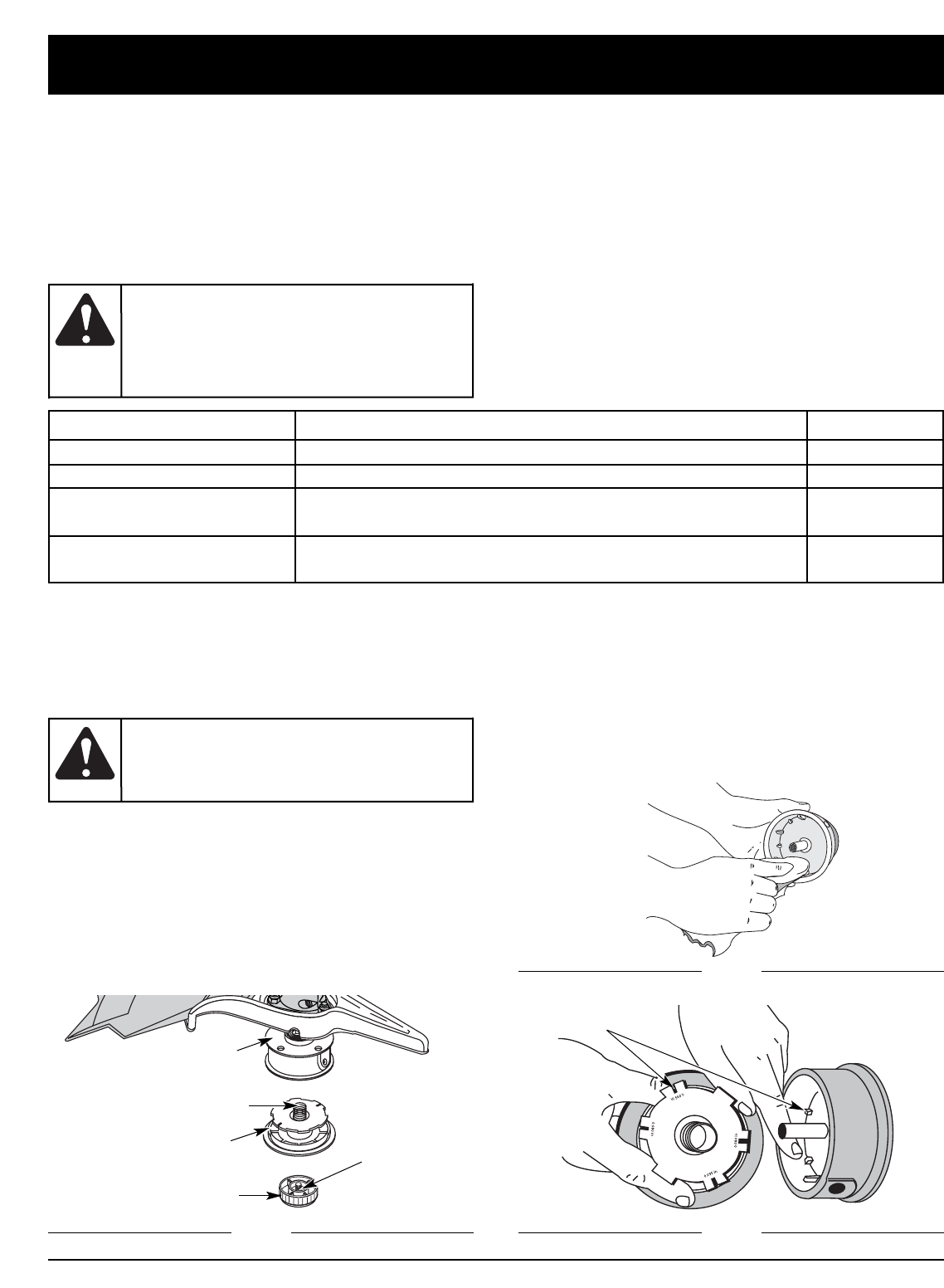
15
MAINTENANCE AND REPAIR INSTRUCTIONS
MAINTENANCE SCHEDULE
Perform these required maintenance procedures at the
frequency stated in the table. These procedures should
also be a part of any seasonal tune-up.
NOTE: Some maintenance procedures may require
special tools or skills. If you are unsure about
these procedures take your unit to any non-road
engine repair establishment, individual or
authorized service dealer.
NOTE: Maintenance, replacement, or repair of the
emission control devices and system may be
performed by any non-road engine repair
establishment, individual or authorized service
dealer.
In order to assure peak performance of your engine,
inspection of the engine exhaust port may be necessary
after 50 hours of operation. If you notice lost RPM, poor
performance or general lack of acceleration, this service
may be required. If you feel your engine is in need of this
inspection, refer service to any non-road engine repair
establishment, individual or authorized service dealer for
repair. DO NOT attempt to perform this process yourself
as engine damage may result from contaminants
involved in the cleaning process for the port.
FREQUENCY MAINTENANCE REQUIRED REFER TO
Before starting engine Fill fuel tank with fresh fuel Page 11
Every 10 hours Clean and re-oil air filter Page 17
Every 25 hours
Check and clean spark arrestor
Check spark plug condition and gap
Page 18
Page 20
Every 50 hours
Inspect exhaust port and spark arrestor screen for clogging or
obstruction to assure maximum performance levels
Page 18
To prevent serious
injury, never perform
maintenance or repairs with unit running.
Always service and repair a cool unit.
Disconnect the spark plug wire to ensure that
the unit cannot start.
WARNING:
Indexing Teeth
Fig. 25
Fig. 26
LINE INSTALLATION
This section covers both SplitLine™ and standard single
line installation.
Always use original equipment manufacturer 0.095 in.
(2.41 mm) replacement line. Other types of line may
make the engine overheat or fail.
There are two methods to replace the trimming line:
• Wind the inner reel with new line
• Install a prewound inner reel
Winding the Existing Inner Reel
1. Hold the outer spool with one hand and unscrew the
Bump Knob clockwise (Fig. 24). Inspect the bolt inside
the bump knob to make sure it moves freely. Replace
the bump knob if damaged.
2. Remove the inner reel from the outer spool (Fig. 24).
3. Remove spring from the inner reel (Fig. 24).
4. Use a clean cloth to clean the the inner reel, spring,
shaft and inner surface of the outer spool (Fig. 25).
5. Check the indexing teeth on the inner reel and outer
spool for wear (Fig. 26). If necessary, remove burrs or
replace the reel and spool.
Inner Reel
Spring
Outer Spool
Bump Knob
Bolt
Fig. 24
Never use metal-
reinforced line, wire,
chain or rope. These can break off and
become dangerous projectiles.
WARNING:



